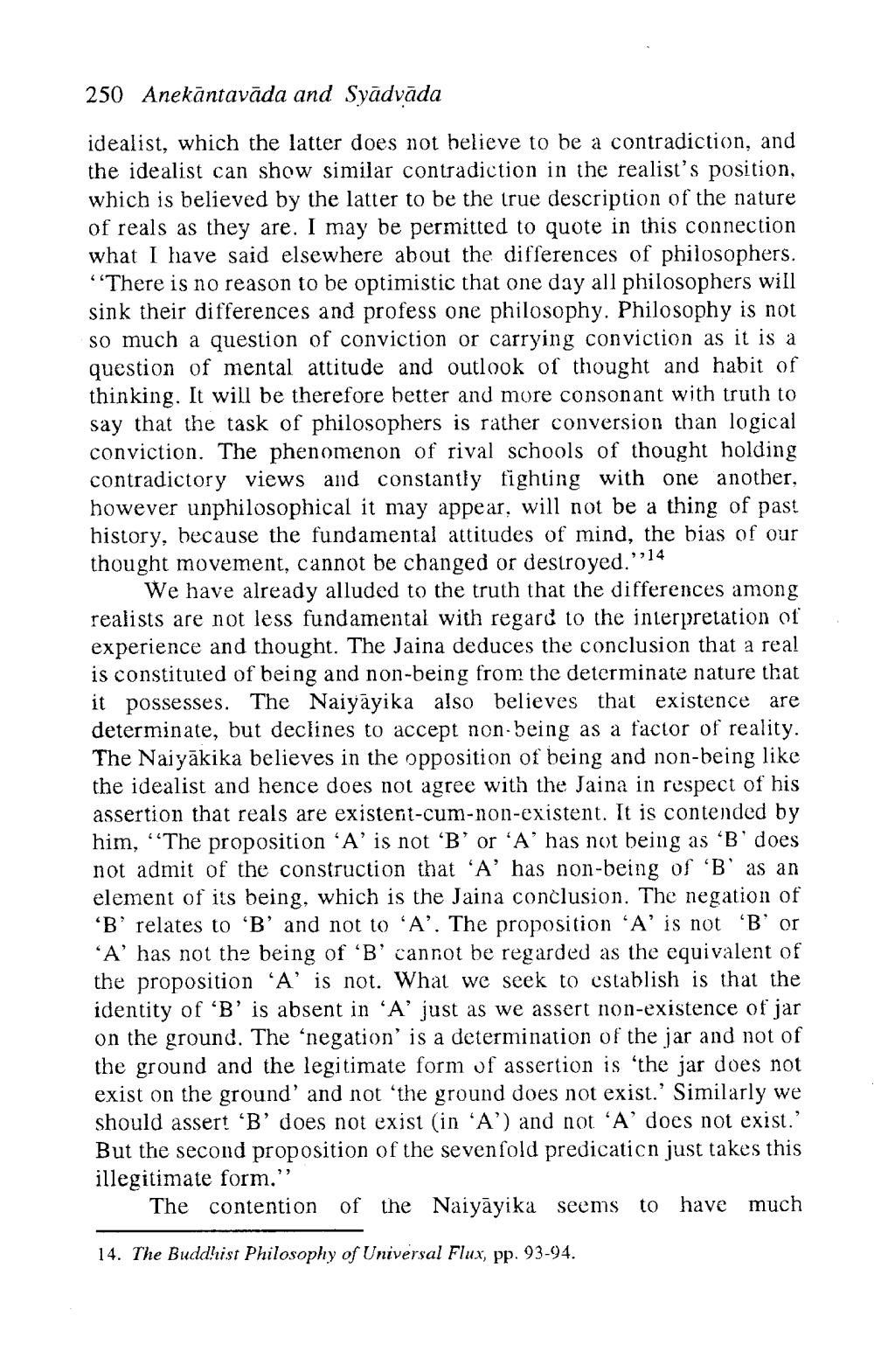________________
250 Anekāntavāda and Syādvāda
idealist, which the latter does not believe to be a contradiction, and the idealist can show similar contradiction in the realist's position, which is believed by the latter to be the true description of the nature of reals as they are. I may be permitted to quote in this connection what I have said elsewhere about the differences of philosophers. "There is no reason to be optimistic that one day all philosophers will sink their differences and profess one philosophy. Philosophy is not so much a question of conviction or carrying conviction as it is a question of mental attitude and outlook of thought and habit of thinking. It will be therefore better and more consonant with truth to say that the task of philosophers is rather conversion than logical conviction. The phenomenon of rival schools of thought holding contradictory views and constantly fighting with one another, however unphilosophical it may appear, will not be a thing of past history, because the fundamental attitudes of mind, the bias of our thought movement, cannot be changed or destroyed.'14
We have already alluded to the truth that the differences among realists are not less fundamental with regard to the interpretation of experience and thought. The Jaina deduces the conclusion that a real is constituted of being and non-being from the determinate nature that it possesses. The Naiyāyika also believes that existence are determinate, but declines to accept non-being as a factor of reality. The Naiyakika believes in the opposition of being and non-being like the idealist and hence does not agree with the Jaina in respect of his assertion that reals are existent-cum-non-existent. It is contended by him, "The proposition 'A' is not 'B' or 'A' has not being as 'B' does not admit of the construction that 'A' has non-being of 'B' as an element of its being, which is the Jaina conclusion. The negation of 'B' relates to 'B' and not to 'A'. The proposition 'A' is not 'B' or
A has not the being of 'B' cannot be regarded as the equivalent of the proposition 'A' is not. What we seek to establish is that the identity of 'B' is absent in ‘A’ just as we assert non-existence of jar on the ground. The 'negation' is a determination of the jar and not of the ground and the legitimate form of assertion is "the jar does not exist on the ground' and not the ground does not exist.' Similarly we should assert 'B' does not exist (in ‘A’) and not ‘A’ does not exist.' But the second proposition of the sevenfold predication just takes this illegitimate form."
The contention of the Naiyāyika seems to have much
14. The Budd!uist Philosophy of Universal Flux, pp. 93-94.




